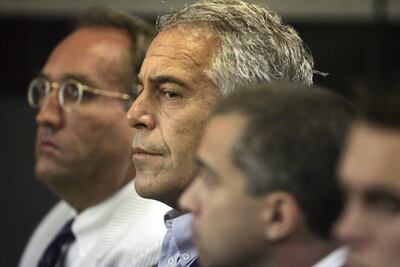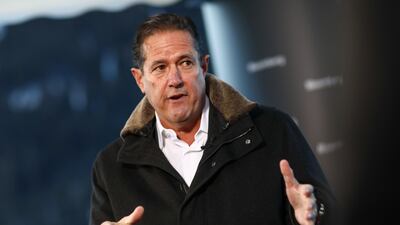On the boardroom floor of the Barclays headquarters at Canary Wharf sit oil portraits of the bank’s Quaker founders.
Members of the English religious movement famous for its adherence to plain dressing, non-adornment and purity, stare down from the walls. It’s an incongruous spectacle anyway, old paintings in a building that is all gleaming steel and glass.
Odder, too, because of the nature of what their organisation became: a thundering global bank, a financial powerhouse raking in billions and paying out fortunes to its bosses.
What they would make of those who ran Barclays is anyone’s guess.
It was strange going there when Bob Diamond, the flashy, pugnacious American, ran the investment arm and seeing them looking down.
Diamond worked with a cast of characters who, presumably, would never dream of setting foot in a Quaker – or as they’re known, Society of Friends – meeting hall, like Roger Jenkins (schmoozer of the international rich and famous, several homes including one in Malibu) and Rich Ricci (pronounced “Richie”, given to wearing sunglasses, loud suits and hats, serial racehorse owner).
At least then, there was the more ascetic John Varley managing the entire show. In more recent years, there’s been Jes Staley, another American big hitter drafted in to take on the Wall Street giants, in charge. Most recently, in the past few days, they witnessed the difficult meetings called to discuss and approve Staley’s departure.

Staley, 64, is going because the directors became aware last Friday evening of the preliminary findings of a regulatory investigation into his links to the convicted US sex offender and financier, Jeffrey Epstein.
They got to know one another when Staley took charge of JP Morgan’s private banking operation in 2000. Epstein, who died in custody in New York in August 2019, was already a JP Morgan private client.
Staley’s task, as is the wont on that side of the industry, was to “get close” to the hugely well-connected, party-hosting Epstein. This he did, successfully, and soon Epstein was sending his wealthy chums to Staley and his team at JP Morgan.
There was nothing untoward with that – private finance is entirely reliant on personal relationships.
And no one had a better network than Epstein, as his later disclosed “black book” of contacts revealed. There, sure enough, under “S”, amid tycoons, politicians and film stars, were the details for Staley.
Fatally, Staley maintained contact after Epstein was convicted of child sex-trafficking in 2008. Epstein served nearly 13 months and Staley visited him at his office in Florida while he was on work release from jail.
'Sufficiently transparent'
In 2015, Staley joined Barclays and the UK bank assured the authorities their relationship was professional, no more.
Later, it transpired that shortly before he took over at Barclays, Staley had seen Epstein on his private island, Little St James, in the US Virgin Islands. Staley and his wife, Debora, were sailing their 90-ft wooden handcrafted yacht close by and dropped in on Epstein for a lunch lasting two hours.

There is no suggestion that Staley was involved in any of Epstein’s wrongdoing – rather it was whether theirs was closer than the distant relationship Barclays had portrayed.
Bankers are encouraged to befriend their clients, especially those who will bring them new business leads.
Indeed, sitting with them and listening to them name drop it is sometimes difficult to discern whether the person mentioned is a true “friend” or merely a business acquaintance – the lines are blurred.
The problem for Staley and Barclays is that the bank’s chief continued to see Epstein after he was convicted, when wiser folks might have ended the association. This, too, without the cache of emails between the pair handed over to the authorities from JP Morgan.
Barclays chairman Nigel Higgins confidently declared Staley had been “sufficiently transparent” with the bank about Epstein. Having probed, the watchdogs are begging to differ, so Staley has gone.
Incoming 'nice guy'
Barclays cannot maintain it was not warned. The bank had already been hit with a penalty of $15m by a US regulator after Staley was so incensed by a whistle-blower that he tried to have them unmasked.
It was a scandalous venture, and Staley, who was fined £642,000 by the UK Financial Conduct Authority, should have gone there and then. He stayed, and now look.
It’s not the end of it, either. Staley says he will contest the implication that he lied about Epstein, while shareholders vent their anger at his £2.5m payoff.
In the middle of this, it’s easy to forget, is a financial services behemoth with a new head, CS Venkatakrishnan or Venkat.
Barclays is actually in pretty good shape, thanks to booming investment banking. Staley’s strategy was to push that area, particularly equity trading, and it’s paid off.
The problem is that while it’s propelled the UK bank to six in the world investment bank rankings, displacing Credit Suisse, analysts question how long that ride can last, especially as much of the bonanza has derived from market turbulence caused by Covid-19 and from the central banks pumping in money to prop up their economies.
Investment banking accounts for 70 per cent of group earnings, up from 35 per cent before the pandemic. Should that falter, then Barclays appears markedly less robust.
That, of course, is down to Venkat to sort. He was one of a cadre of JP Morgan stars persuaded to move to Barclays. At JP Morgan, Venkat managed risk, flagging up the potential for massive losses from the derivatives trades that became known as the “London Whale” affair. He was right, they blew a $6.2bn hole in the accounts.
Venkat maintained the same role at Barclays. While others, notably Paul Compton, another JP Morgan poaching, head of investment banking and Staley’s right hand, were widely seen as more likely successors, the board went for Venkat.
They were far advanced in finding a replacement as Staley was expected to depart in the next year or so.
Venkat is low key, by common consent internally a “nice guy”, cautious, methodical, for continuity and evolution, not prone to histrionics and dramas. He’s a safety play. For that, the bank’s creators doubtless would give thanks.


